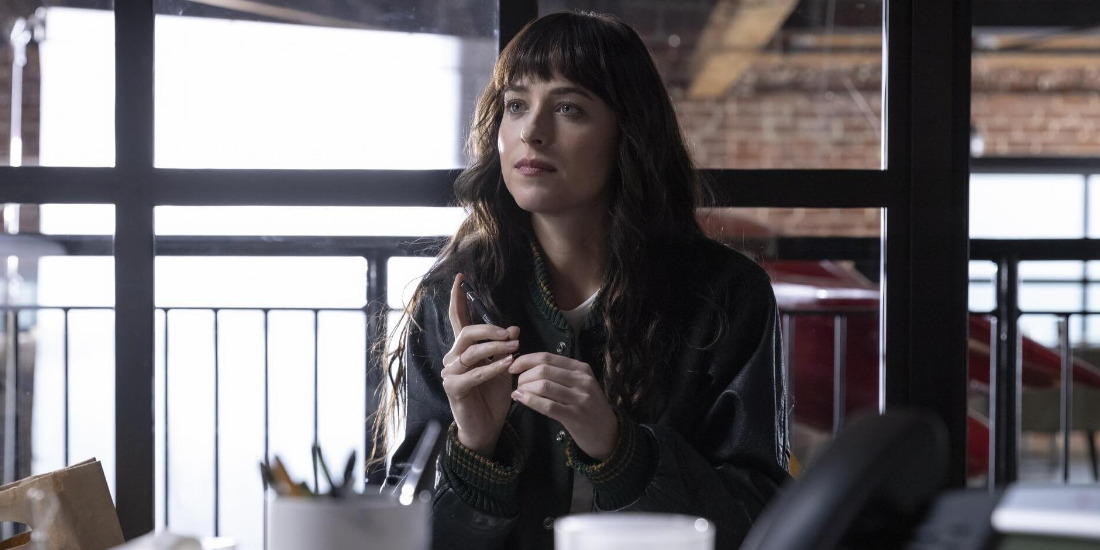Centering around the lifelong friendship between two women who find themselves simultaneously facing drastic life-changing curveballs, ‘Am I OK’ presents a film about self-actualization through connections with others. Lucy has a natural inclination toward overthinking things and dodging changes. Therefore, once the realization of her sexuality arrives in her early thirties, the woman can’t help but be tied down by self-doubt and uncertainty. Therefore, after her best friend, Jane— who is about to move continents for a job opportunity in London— decides to help her enter the lesbian dating scene, complications grow between the two women.
Even though Lucy’s initial entry into the world of dating women bears disastrous results involving an unhealthy situationship with a co-worker, the character eventually grows into her own with the plot’s progression. As such, while Lucy had trouble holding a conversation with interested women at bars earlier— by the end, she finds herself maneuvering the online dating space with relative ease. However, is the character’s choice of dating app, Spring, based on a real platform? SPOILERS AHEAD!
Spring: A Fictional App That Signifies Lucy’s Self-Acceptance
Although ‘Am I OK’ mines significant inspiration from real-life situations and experiences, the film still quips a fair amount of fictionalization when crafting various narrative elements. Spring, the dating app that arrives near the end of Lucy’s character arc, remains one such addition. Even though Jane floats the idea of registering on a dating app to Lucy early into the latter’s self-discovery journey, Lucy is quick to shoot down the suggestion. Initially, the artist is scared of starting online dating because of the fear of running into known individuals and having to come out to them as a result of the same.

The doubt Lucy showcases of an untimely outing remains relevant to the lived experiences of numerous individuals, including others like her, who figure out their sexualities later in life. Although Lucy is confident in her attraction toward other women— and lack thereof in regard to men— she’s worried about how people will perceive her for her late blooming. The same, paired with the general pessimism surrounding dating apps and the romanticism of crossing paths through an algorithm, turns Lucy away from taking the online route when it comes to dating. Likewise, her existing attraction toward Brittany, the new masseuse, makes her unwilling to pursue other people.
In contrast, Lucy’s confident approach to online dating after the end of her and Brittany’s connection showcases the stark difference that time and experiences bring for the character. Therefore, the Spring Dating App— although a momentary tool in Lucy’s character arc— remains instrumental for the narrative. Additionally, as per statistics, queer individuals are more likely to say they have been on a dating app than their straight counterparts. Consequently, the app’s influence over the character presents a realistic situation, allowing the viewers to relate to Lucy. Nevertheless, while there are numerous popular dating apps relevant to the queer dating scene, such as Tinder, Bumble, and Grindr, Spring isn’t one of them. As such, Spring remains a fictional dating app within the film.
Read More: Am I OK: Is Jane Gay or Bisexual?


You must be logged in to post a comment.